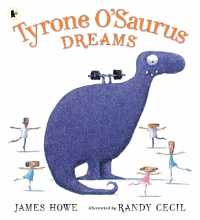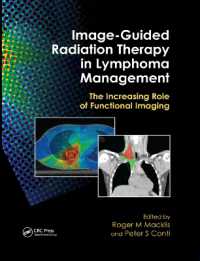- ホーム
- > 洋書
- > 英文書
- > Religion / Ethics
Full Description
Election, Atonement, and the Holy Spirit' is an examination of the doctrines of election and atonement in Karl Barth's 'Church Dogmatics', taking up Barth's own challenge to his reader to surpass his argument and offer a better typological interpretation of the cultic texts. Barth's radical re-working of Calvin's doctrine of election is one of the most important developments in twentieth-century theology. Christ synthesizes for Barth a particular dialectic: the binary structure of God's Yes of election and God's No of rejection. The book's central question - how can Jesus simultaneously be both the elected and the rejected (CD II/2), acting as both the judge and the judged (CD IV/1)? - is followed by an exploration of the roles of the Holy Spirit and human freedom in God's electing and saving action. Although commentators acknowledge Barth's innovation in this area but also identify problems with his approach, few have offered what David Ford has called a correction 'from within' Barth, using Barth's own method. Using the concept of Existenzstellvertretung, this critique of Barth's exegetical justification for the doctrines offers an alternative exegesis that not only provides this much-needed correction, but also immerses the reader in a fresh engagement with Scripture itself.
Contents
Foreword by David F. Ford
Preface
Acknowledgements
Abbreviations
Introduction
1. The Pastoral Motivations of this Study and the Nature of the Problem
2. The Task of the Study
3. The Method of Study
4. An Outline of the Study
1 Election, Rejection, and Exegesis
Introduction
1. The Pastoral Concern with Election
2. Re-locating the Doctrine
3. The Basis of Barth's Doctrine of Election: God's Self-Revelation
4. Jesus Christ: the 'Electing God' and the 'Elected Human'
5. Simul Electus et Reprobatus: God's Yes and God's No
6. Barth's Typological Exegesis of Leviticus 14 and 16
Conclusion
2 Jesus Christ the Elect: Through and Beyond Barth
Introduction
1. An Exegetical Challenge to Barth's Doctrine of Election
2. Barth's Typological Interpretation Revisited
3. An Alternative Typology
Conclusion
3 The Covenant, Humanity and das Nichtige
Introduction
1. The Covenant
2. Humanity
3. Das Nichtige
Conclusion
4 Jesus Christ the Judge: Through and Beyond Barth
Introduction
1. Atonement in the Early Church
2. The Reformed Backdrop of Barth's Theology of Atonement
3. Barth on Cur Deus Homo?
4. Jesus the High Priest
5. Jesus is Victor: The Conquering of Sin
6. Existenzstellvertretung in the New Testament
Conclusion
5 Election, Atonement, and the Holy Spirit
Introduction
1. Election and Universalism
2. The Eternal Spirit and the Mortal Soul
3. Humanity, Freedom, and Faith
Conclusion
Conclusion
1. Problems with Barth's Exegesis
2. Beyond the Binary Impasse of the Yes and No in Christ
3. Pastoral Implications: Limited Atonement and Universalism
4. Systematic Implications: The Economic and Immanent Trinity
Concluding Remarks
Bibliography
Subject Index
Name Index
Scripture Index







